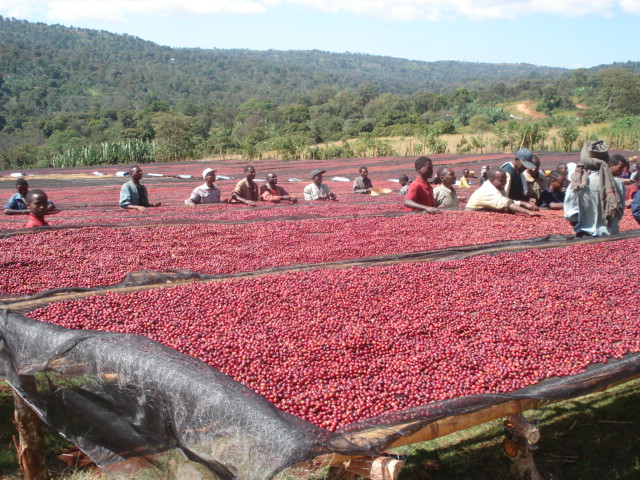Ethiopia is the birthplace of Arabica coffee, and one of the finest coffee-producing countries in the world. The legend of how coffee was discovered tells the story of a goat breeder discovering coffee by watching his goats act strange after eating the fruits of an unfamiliar tree. He took the fruit’s seeds to the nearest monastery, where the monks prepared a tea from them. The monks then felt very energetic and stayed awake all night long. After the monks discovered the effect of the beans, the news was shared from monastery to monastery. Coffee was then transported from Ethiopia to Egypt and Yemen and so on.
Ethiopia is the birthplace of Arabica coffee, and is home to some of the most diverse varieties on the planet. Due to this the cup profile can vary drastically, but certain regions produce coffees which are distinctive. Yirgacheffe is traditionally known for its perfumey jasmine, floral, and citrusy characteristics. Naturally processed coffees from Yirgacheffe have proved themselves to be an amazing alternative to the traditional offerings from Harrar and Sidama. The cup profile is the beautiful simplicity of Yirgacheffe with strawberries and cream thrown in the mix, while Harrar/Sidama is known to be clasically more jammy and wild with a distinct blueberry note.
Ethiopia is a large, landlocked country in the eastern Horn of Africa. It is about three times the size of California, or approximately the same size as France, Germany, and the United Kingdom combined. It is also the second most populous country in Africa, with an estimated population of 85 million people.

